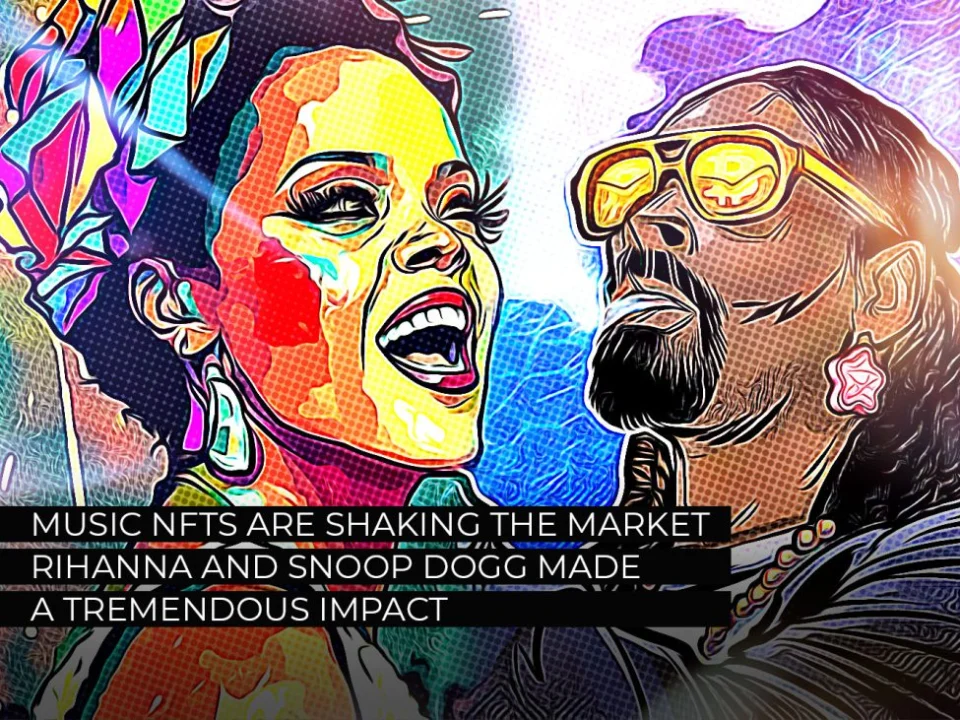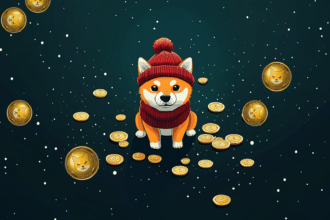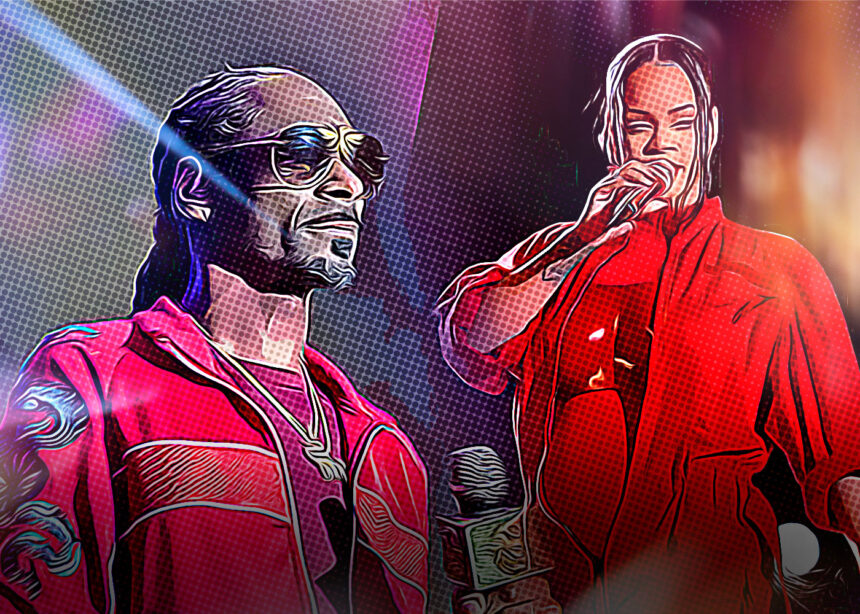Music NFTs are revolutionizing the music industry, offering unprecedented opportunities for artists and fans alike. By leveraging blockchain technology, NFTs provide a way for musicians to sell unique digital assets directly to their audience. Icons like Rihanna and Snoop Dogg have been pivotal in pushing this innovative trend forward. They’ve successfully harnessed the power of NFTs to create new revenue streams and engage their fan base in novel ways. As the landscape continues to evolve, understanding the implications of music NFTs will be crucial for anyone invested in the future of entertainment.
Understanding Music NFTs: How They Work and Why They Matter

Music NFTs are digital assets that harness blockchain technology, providing a unique and verifiable ownership record of music-related content. Unlike traditional music distribution methods, NFTs offer distinct advantages for both creators and fans.
How They Work:
- Blockchain Technology: NFTs utilize blockchain to create a secure and immutable ledger.
- Smart Contracts: These digital contracts automatically execute and enforce terms, ensuring royalty payments and ownership transfer.
- Unique Digital Assets: Each NFT is inherently unique, representing ownership of a specific piece of music, album, or even concert ticket.
Why They Matter:
- Direct Artist Support: NFTs allow musicians to connect with their audience directly, bypassing traditional intermediaries.
- Monetization: Artists can monetize their work more effectively, earning revenue through initial sales and secondary market resales.
- Fan Engagement: Fans gain a sense of ownership and a deeper connection with their favorite artists, often gaining access to exclusive content.
Comparison with Traditional Music Distribution:
| Feature | Music NFTs | Traditional Methods |
|---|---|---|
| Ownership | Unique, verifiable via blockchain | Generally no ownership for buyers |
| Revenue Model | Direct payments, royalties on resales | Revenue mainly through intermediaries |
| Artist-Fan Interaction | Enhanced via exclusive content | Limited interaction and engagement |
In conclusion, music NFTs are reshaping the music industry by offering unprecedented opportunities for revenue and fan engagement.
Rihanna and Snoop Dogg: Pioneers in the Music NFT Space
Rihanna and Snoop Dogg have significantly reshaped the landscape of music NFTs, showcasing their forward-thinking approach and pioneering spirit. Rihanna, renowned for her chart-topping hits and business acumen, has leveraged NFTs to release exclusive content and engage with her fanbase in unprecedented ways. On the other hand, Snoop Dogg has taken his involvement a step further, becoming an active advocate and creator within the NFT community.
Key Contributions:
Rihanna:
- Released limited-edition albums as NFTs.
- Offered behind-the-scenes content and exclusive artwork to NFT holders.
- Promoted NFTs as a new revenue stream for artists.
Snoop Dogg:
- Dropped multiple NFT collections featuring music, art, and rare digital items.
- Collaborated with well-known NFT platforms to maximize reach.
- Engaged with fans through virtual meet-and-greets and exclusive events tied to his NFTs.
Both artists have illustrated the transformative potential of NFTs in the music industry. They not only offer new revenue opportunities but also empower artists to control their creative outputs. By setting these precedents, Rihanna and Snoop Dogg encourage other musicians to explore the possibilities that NFTs provide.
The Future of Music NFTs: Trends and Predictions
As the music industry rapidly embraces innovation, the future of music NFTs appears promising and transformative. Several key trends and predictions are shaping this new frontier:
Increased Artist Autonomy: Musicians can now bypass traditional music distribution channels. NFTs offer them direct control over their works, allowing for a more personalized connection with their fanbase. Expect more artists to take this route.
Enhanced Fan Experiences: Fans can own a piece of music history by purchasing NFTs, such as limited-edition releases, exclusive content, and virtual meet-and-greets. This deepens fan engagement and opens new revenue streams for artists.
Diversification of Revenue Sources: Beyond album sales and streaming revenue, NFTs introduce innovative monetization methods. These include auctioning rare tracks, selling digital art, and even creating virtual concerts.
Investment Opportunities: As music NFTs gain popularity, they become viable investment assets. Fans and collectors may see these digital tokens appreciate in value, leading to a thriving secondary market.
| Trend | Explanation |
|---|---|
| Increased Artist Autonomy | Direct distribution bypasses traditional channels. |
| Enhanced Fan Experiences | Ownership of exclusive content deepens engagement. |
| Diversification of Revenue | New monetization methods through digital assets. |
| Investment Opportunities | Music NFTs as appreciating assets. |
In summary, the influence of music NFTs is expanding, offering novel opportunities for artists and fans alike. Keeping an eye on these evolving trends is essential for anyone invested in the future of the music industry.
Frequently Asked Questions
What are Music NFTs?
Music NFTs (Non-Fungible Tokens) are unique digital assets that represent ownership or proof of authenticity of a specific piece of music or related digital content, such as album artwork, music videos, or exclusive behind-the-scenes content. Unlike traditional music files, Music NFTs are stored on a blockchain, ensuring their originality and scarcity, which can add significant value for fans and collectors.
How have Rihanna and Snoop Dogg impacted the Music NFT market?
Rihanna and Snoop Dogg have played pivotal roles in popularizing Music NFTs by leveraging their significant influence and large fan bases. Both artists have released exclusive music and digital content as NFTs, showcasing the potential for direct artist-to-fan engagement and new revenue streams outside traditional music distribution models. Their involvement has raised awareness and credibility for Music NFTs, encouraging more artists and consumers to explore this innovative market.
Why are Music NFTs considered valuable?
Music NFTs are considered valuable for several reasons. Firstly, they offer verifiable proof of ownership and authenticity, which is significant in the digital age where replication is easy. Secondly, they provide unique opportunities for fans to own a piece of their favorite artist’s work, often including exclusives like limited edition tracks or personalized experiences. Finally, Music NFTs enable artists to maintain greater control over their work and potentially earn more from sales, as they can bypass traditional intermediaries like record labels.
How do Music NFTs benefit both artists and fans?
For artists, Music NFTs provide an innovative way to monetize their work directly, ensuring they retain a larger share of the earnings. These NFTs also help artists build stronger, more personal connections with their fans by offering exclusive content and experiences. For fans, Music NFTs present an opportunity to own unique, collectible pieces from their favorite artists, often with added perks such as access to unreleased tracks, special events, or direct interaction with the artists. This dynamic fosters a more engaged and loyal fanbase.







